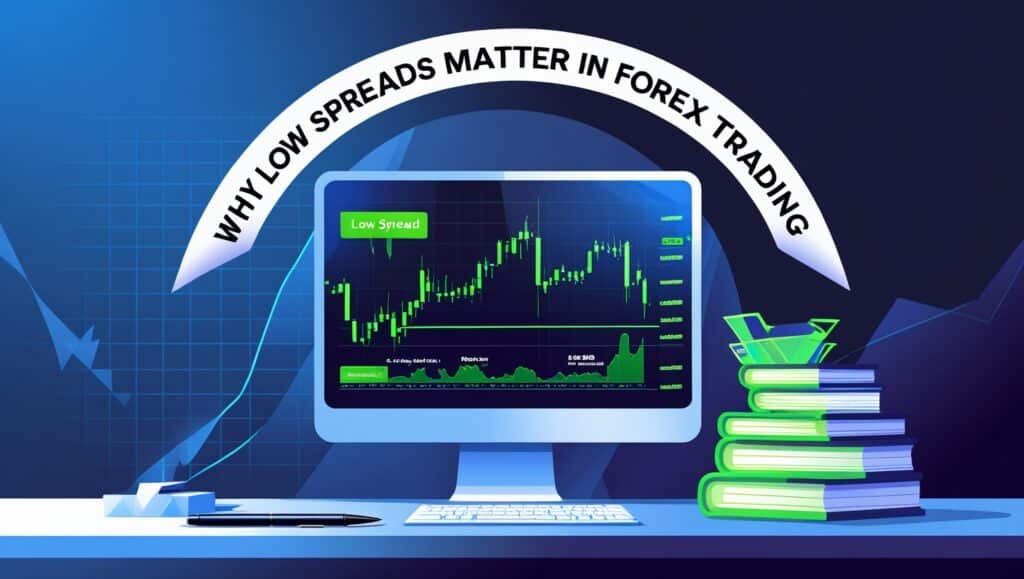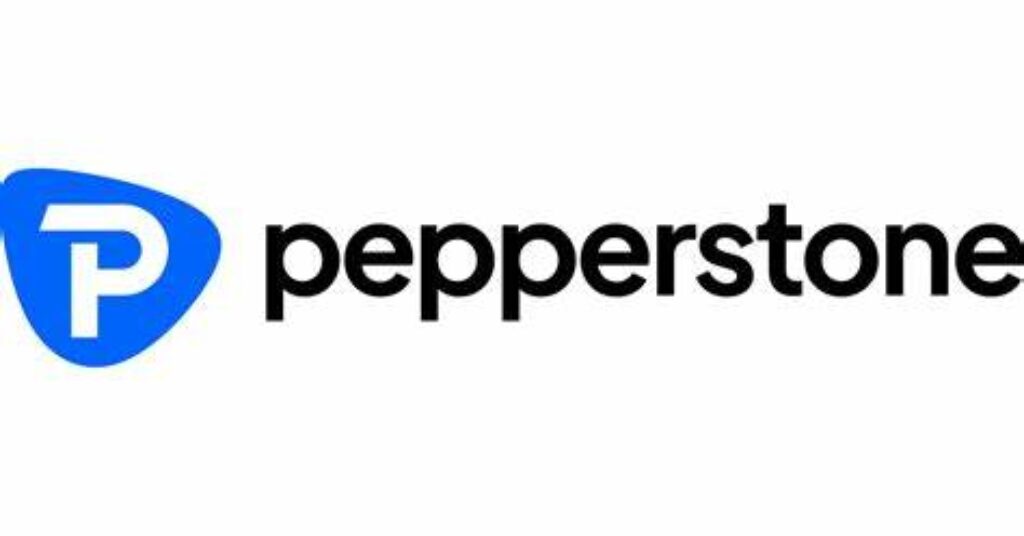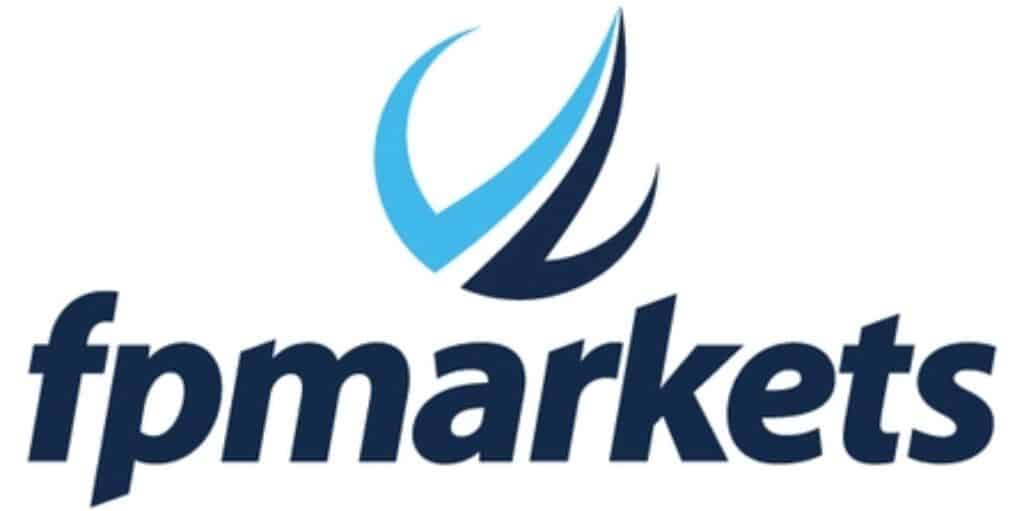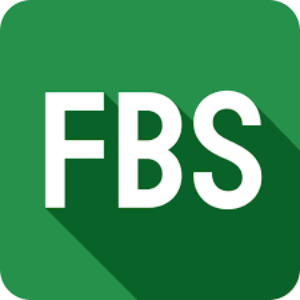
In forex trading, the spread is the difference between the bid and, ask prices is a key cost for every trade. Traders in the United Arab Emirates often seek brokers with the lowest spread forex broker accounts to maximize profits. Low spreads (sometimes as tight as 0.0 pips) mean cheaper execution on major currency pairs. However, breadth of trading instruments, reliable execution, and strong regulation are equally important considerations. In UAE, brokers may be regulated by local authorities like the DFSA (Dubai) or ADGM (Abu Dhabi) while catering to a global market. This article explains why tight spreads matter, how to compare brokers, and highlights five top forex brokers offering some of the lowest spreads in UAE.
Overview : 5 Best Lowest Spread Forex Brokers in UAE
| Broker | Spreads & Account Types | Regulation & Safety | Key Features | Best For |
|---|---|---|---|---|
|
1. Pepperstone
Australia-based ECN broker
|
From 0.0 pips Razor Account EUR/USD avg: ~0.10 pips
|
ASIC
FCA
DFSA Segregated funds, 99.5% execution rate |
|
Scalpers & algo-traders seeking ultra-low spreads |
|
2. IC Markets
Global ECN with Dubai entity
|
From 0.0 pips Raw Spread EUR/USD avg: ~0.1 pips + $3.50 commission
|
ASIC
DFSA IC Markets Dubai Ltd (local entity) |
|
Active traders needing fast execution & local regulation |
|
3. FP Markets
Award-winning zero-spread broker
|
From 0.0 pips Raw Account $3 AUD commission per side
|
ASIC
DFSA FP Markets Ltd (DIFC presence) |
|
Traders wanting award-winning low costs & local support |
|
4. XM
Global broker with UAE focus
|
From 0.8 pips Ultra Low & Standard No commission (costs in spread)
|
ASIC
CySEC Offshore entities serving UAE |
|
Beginners & small account traders preferring no commissions |
|
5. Swissquote
Swiss bank with DFSA license
|
0.7-1.3 pips Variable Spreads Bank-level infrastructure
|
DFSA
Swiss Bank Swissquote MEA Ltd (full banking license) |
|
Conservative traders prioritizing Swiss banking security |
Understanding Forex Spreads
A forex spread is essentially the broker’s fee built into currency quotes. Investopedia defines it as “the difference between the exchange rate that a forex broker sells a currency, and the rate at which the broker buys the currency.”
In practice, if EUR/USD has a 1.1000 bid and a 1.1002 ask, the spread is 0.0002 (2 pips). Traders pay this cost when entering and exiting positions. Because spreads directly impact profitability, even small differences matter – “the smallest difference in price matters a lot”. Low spreads benefit frequent traders (day traders or scalpers especially) by reducing trading costs.
Forex spreads can be fixed or variable. Major currency pairs (like EUR/USD) often have the tightest spreads due to high liquidity. However, spreads widen during news or low-liquidity periods. A raw (ECN) account typically offers the lowest spreads (sometimes 0.0 pips) plus a commission. By contrast, standard accounts or market-maker brokers bundle their fee into wider spreads. When comparing brokers, look at average spreads on pairs like EUR/USD and GBP/USD under normal market conditions. Industry sources note that some brokers advertise spreads from 0.0–0.1 pips on EUR/USD, making them leaders in low-cost trading.
Why Low Spreads Matter in Forex Trading?
It is important to note that tight spreads alone do not guarantee profit, but they are a critical component of trading costs. As one industry analysis puts it, “Spreads play a significant part in the profitability of your trades”. Lower spreads allow traders to capture more of the market’s movement instead of giving it to the broker. Over many trades, even a 0.5 pip difference per trade adds up significantly. For example, trading 1 standard lot of EUR/USD (100,000 units) with a 0.5 pip higher spread costs an extra $5 per position (vs. 0.1 pip).

Moreover, strategies like scalping and high-frequency trading rely on razor-thin spreads to be viable. Many top brokers for these strategies offer raw spreads from 0.0 pips, enabling quick entries/exits without a built-in cost. However, traders should also consider execution quality and slippage.
A noted expert observation is that “high-quality order execution ensures that spreads the broker advertises and which you see are the spreads you trade on”. In other words, true cost savings require both low advertised spreads and reliable execution without requotes.
How to Choose a Forex Broker with Low Spreads in the UAE?
Selecting the right broker involves more than just picking the smallest number. UAE traders should consider:
| 1 |
🛡️ REGULATION & SAFETY
Is the broker supervised by DFSA, ADGM/FSRA, or other top-tier regulatory bodies?
Regulation provides crucial safety of funds and regulatory oversight. UAE traders should prioritize brokers with strong regulatory compliance.
💡 Look for: DFSA (Dubai), FSRA (Abu Dhabi), ASIC (Australia), FCA (UK), CySEC (Cyprus)
|
| 2 |
⚖️ ACCOUNT TYPES
Raw/ECN accounts: Zero spreads + commissions vs Standard accounts: No commission + higher spreads
Understanding the trade-off between spread structure and commission models is crucial for cost optimization.
💡 Raw accounts often better for high-volume traders, Standard accounts for occasional trading
|
| 3 |
🏦 LIQUIDITY PROVIDERS
Brokers with multiple Tier-1 bank liquidity sources offer tighter spreads round-the-clock
More liquidity providers = better pricing and execution, especially during volatile market conditions.
💡 Look for: 15+ liquidity providers, major banks like Goldman Sachs, JP Morgan, Citibank
|
| 4 |
💻 TRADING PLATFORMS
Platform quality (MT4/5, cTrader, etc.) directly affects execution speed and trading experience
Superior platforms provide better order execution, advanced charting, and algorithmic trading capabilities.
💡 Consider: Server location, execution speed, mobile apps, advanced order types
|
| 5 |
💰 OVERALL COSTS
⚠️ Warning: A broker with “zero spreads” but high commissions may not be cheaper overall
Calculate the total trading cost including spreads, commissions, overnight fees, and hidden charges.
💡 Formula: Total Cost = Spread + Commission + Swap + Other Fees per trade
|
A key trade-off is fixed vs. variable spreads. Fixed-spread brokers may widen spreads during volatile news. Variable-spread (ECN) brokers advertise ultra-low spreads during normal conditions, but spreads can increase when volatility surges. Traders should view the average or typical spread statistics. For instance, one review shows Pepperstone’s raw account has an average EUR/USD spread of ~0.10 pips, among the lowest in the industry. Always check for disclaimers: spreads “as low as” values often assume high-volume trading and optimal market conditions.
Another consideration in the UAE is deposit/withdrawal convenience. Some local brokers or Dubai-based entities may allow AED funding or local bank transfers. Yet, among low-spread specialists, many are global brokers regulated offshore (e.g. in Australia, Europe) but allow UAE clients. Ensure that any offshore broker accepts clients from UAE and offers account support in relevant languages. Remember the expert advice: “The safety and trustworthiness of a broker should be the most important factors” when choosing. Low spreads are valuable only if the broker executes reliably and safeguards client funds.
Top 5 Lowest Spread Forex Brokers in UAE
1. Pepperstone – Razor-Tight Raw Spreads
Pepperstone (Australia) is widely cited as a top choice for low spreads. Its Razor Account offers institutional-grade pricing with spreads from 0.0 pips on major forex pairs. In fact, one analysis notes Pepperstone’s raw spreads start at 0.0 pips plus commission, with 99.5% of orders executed without requotes. Monthly data showed Pepperstone’s average EUR/USD raw spread around 0.10 pips – among the best globally.

Pepperstone supports MT4, MT5, cTrader, and TradingView platforms, allowing scalpers and algo-traders to access deep liquidity at any time. It is not locally headquartered, but it offers a UAE-specific website and customer support. Clients benefit from robust regulation (ASIC, FCA, DFSA for its Dubai entity) and segregated funds. An industry review praised its “super-tight spreads from 0.0 pip^ on our Razor account on Major FX pairs”. Overall, Pepperstone’s combination of ultra-low spreads, fast execution, and strong customer service make it a top pick for UAE traders seeking minimal trading costs.
2. IC Markets – Institutional Spreads and Fast Execution
IC Markets is another ECN broker known for some of the tightest spreads worldwide. On its Raw Spread account, spreads start at 0.0 pips, with an average EUR/USD around 0.1 pips. This “one of the tightest average EURUSD spread globally” comes from sourcing prices from 25+ liquidity providers. The broker’s MT4/MT5 servers are co-located in NY4 (for fast execution), which helps minimize slippage.
While IC Markets’ global headquarters is Australia, it also operates a DFSA-regulated entity in Dubai (IC Markets Dubai Ltd). This means UAE clients can trade under local regulation, adding an extra layer of trust. With leverage up to 1:500 and no restrictions on scalping or hedging, IC Markets is popular for active traders. Many reviews highlight that IC Markets “boasts some of the tightest spreads of all forex brokers globally”. Its commission is competitive (around $3.50 per side), and occasional rebate programs reduce costs further. For traders who prioritize raw spreads and need reliable ECN execution, IC Markets ranks among the best choices in the UAE market.
3. FP Markets – Award-Winning Zero-Spread Broker
FP Markets (Australia) has earned recognition for low spreads and raw accounts. It offers a Raw Account where spreads start at 0.0 pips, charging a commission of $3 AUD per side. The broker was named “Best Zero-Spread Forex Broker” by ForexBrokers.com, highlighting its value-oriented approach. The FXStreet review notes FP Markets provides competitive spreads across MetaTrader 4/5 and cTrader, plus access to global instruments via IRESS.

Importantly for UAE traders, FP Markets has a presence in the DIFC/DFSA (FP Markets Ltd), allowing local clients to use an onshore entity. Client funds are held in segregated, tier-1 banks, and negative balance protection applies. According to FXEmpire, FP Markets features “raw spread account…very competitive spreads” and even supports Arabic customer service. Overall, FP Markets strikes a strong balance: it pairs very low spreads (often from 0.0 pips) with tier-1 regulation and an established track record since 2005.
4. XM – Consistently Tight Spreads and Execution
XM (Trading Point Group) is well-known globally and offers low spreads on its Ultra Low and Standard accounts. On average, XM advertises spreads “as low as 0.8 pips” on major FX pairs. It also boasts metrics like 0% requotes and no rejections during trading, implying execution quality. While its fixed-account spreads are slightly higher than raw accounts, XM compensates with no commission charges and supports micro-lots (from 0.01 lot) – useful for beginners or small investors.
XM holds licenses in multiple jurisdictions (Australia’s ASIC, Cyprus’s CySEC) and serves UAE clients through offshore entities. It allows AED as base currency and Arabic support. In terms of low-spread trading, XM’s absence of commission means all costs are in the spread. Traders often find XM’s spreads very competitive on majors and minors, though during volatility spreads can widen. The broker emphasizes transparency: “Trade with spreads as low as 0.8 pips. No hidden costs”. With over a decade in business and $10+ billion in trades executed, XM is a reliable choice for UAE forex traders who want a blend of low costs and stable execution.
5. Swissquote – Regulated Bank with Tight Spreads
Swissquote is a Swiss bank and online broker that has extended its services to the Middle East under DFSA regulation (Swissquote MEA Ltd). It may not offer raw spreads like ECN brokers, but it provides tight variable spreads and robust infrastructure. According to FXEmpire, “advanced traders seeking low trading costs will find Swissquote an excellent fit” because “progressively tighter spreads are available with various Swissquote account types”. In practice, standard EUR/USD spreads on Swissquote are often in the 0.7–1.3 pip range, which is reasonable considering the extra security of banking-level regulation.
Swissquote stands out for its strong balance sheet (insured deposits), proprietary platforms (Advanced Trader), and broad instrument range (400+ CFDs and forex pairs). It allows AED funding and offers Islamic (swap-free) accounts. For a Dubai resident, using a DFSA-regulated bank broker adds peace of mind. Although its base spreads are not as minuscule as pure ECN brokers, the combination of tight spreads plus top-tier Swiss oversight can be very appealing. As one review put it, Swissquote clients “can access tight spreads and a world-class trading platform, with local support and regulation”.
Other Factors and Broker Comparison
Aside from spreads, traders should examine commissions, account minimums, leverage, and platform features. Our top five all offer MT4/5 (and some additional platforms) and accept clients in UAE. Brokers like Pepperstone and IC Markets clearly lead in raw spread tests, often beating local competitors. FP Markets is close behind, especially praised for its award-winning low-cost accounts. XM may serve traders with smaller accounts, while Swissquote appeals to those prioritizing regulation and research tools.
It is also worth noting some up-and-coming players: for example, ADSS (Abu Dhabi Securities & Commodities Authority regulated) advertises very low spreads on oil CFDs (as low as 0.02 pips on WTI) and tight forex pricing. Moneta Markets (regional arm of IronFX) is known for promotional spreads and ZuluTrade support. Ultimately, the “best forex broker with lowest spread” will vary by trader needs. One should use spread comparison tools or demo accounts to verify current rates. For instance, a regular broker review by CompareForexBrokers found Pepperstone averaging 0.10 pips on EUR/USD RAW accounts – a useful benchmark.
Finally, remember that the “lowest spread” claim often applies to specific conditions (e.g. during high liquidity). When markets heat up, even the best brokers’ spreads can widen. Thus, focus on overall trading conditions: regulatory compliance, execution speed, customer support, and total fees. Combining all these aspects will help you identify the truly optimal low-spread broker for UAE trading.
Conclusion
Conclusively, choosing a forex broker in the UAE should balance ultra-low spreads with reliability and safety. Leading brokers like Pepperstone, IC Markets, and FP Markets specialize in razor-thin spreads (often from 0.0–0.1 pips) and are accessible to UAE clients. At the same time, regulated entities like Swissquote or ADSS offer low costs plus the reassurance of DFSA/ADGM oversight. Traders must scrutinize account types, fees, and execution quality. As emphasized by experts, the safety and trustworthiness of a broker should be the most important factors, even when spread is a key concern. By researching and comparing spreads and support, UAE traders can find the best brokers with lowest spreads that fit their strategies.
FAQs
What is a forex spread and why does it matter?
The spread is the difference between the buy (ask) and sell (bid) price of a currency pair. It is essentially the broker’s fee for executing a trade. A lower spread means you pay less to enter and exit positions. Tight spreads are crucial because they directly affect profitability – even a few pips can add up over many trades. In volatile markets, spreads may widen, so traders often choose brokers with consistently low average spreads.
Do lowest spreads always mean the best broker?
Not necessarily. While low spreads reduce trading cost, other factors are also important. Execution quality, regulation, and overall fees matter too. A broker might advertise 0.0 pips spreads but charge high commissions or have poor execution. Conversely, a highly-regulated broker might have slightly higher spreads but greater trust and service. Experts advise prioritizing broker trustworthiness and regulation above all. In practice, look at the effective cost (spread + commission) and check reviews of order execution.
Can UAE residents use international brokers with low spreads?
Yes, many international forex brokers allow UAE traders to open accounts. Traders often choose brokers regulated in major jurisdictions (like FCA, ASIC) or local UAE-freezone regulators (DFSA, ADGM). For example, Pepperstone and IC Markets have DFSA-licensed entities serving UAE clients. These brokers offer international-level low spreads with local currency support. Always verify that the broker accepts clients from your location and provides appropriate regulatory protection.
How do I compare spreads between different brokers?
To compare spreads, look at live tick data or average spread statistics for the same currency pair and account type. Many broker review sites publish tables of average spreads (e.g. EUR/USD) for comparison. You can also open demo accounts with each broker and observe spreads during similar market conditions. Keep in mind some brokers offer fixed spreads, while others are variable (ECN/raw) and may widen in news. Make sure to compare like with like – raw vs standard account. Remember to factor in commissions when evaluating total trading cost.
Are there any local UAE-regulated brokers with low spreads?
Yes. The UAE has both free-zone regulators (DFSA in DIFC, FSRA in ADGM) and federal regulators (SCA). For instance, ADSS (regulated by FSRA in ADGM) advertises very tight spreads on commodities and forex. Swissquote MEA and FP Markets Ltd are DFSA-authorized and offer competitive spreads. Many global brokers operate local arms under these regulators. It’s important to trade through the local entity if possible, as it provides enhanced legal protection (e.g. client fund segregation under UAE rules). Always check the broker’s license number and entity to ensure you trade under the UAE-regulated branch.







